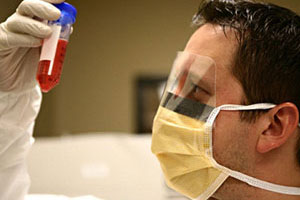Key Immunotherapy Treatment in Stage 4 Cancers

The field of cancer immunology is ostensibly greater than 30 years old and has developed with fervor, particularly over the last 10 years. Immunotherapy, the management of the stimulated immune system to ward off disease, has systematically branched into given subsets including immune system growth factors, monoclonal antibodies, cellular therapies, and even combinations of two or more of these strategies. Recent advances in adoptive immunotherapy (zeroing in on the expansion of specific disease-fighting white blood cells and their infusion into needy patients) have led to renowned discoveries that shall profoundly impact the treatment of stage 4 breast cancer and other Stage 4 Cancer over the upcoming decade.
The Traditional Approach Needs Improvement
Breast cancer treatment early on, has, for quite some time, been focused on lumpectomy combined with radio and chemotherapy to increase survival rates, With late stage breast cancer we typically notice a similar approach, however, it is not uncommon to see added forms of radiotherapy and chemotherapy treatments if the patient had grown refractory (not responding) to the first regimen. Immunotherapy inculcates a totally new way of confronting metastasis and focusing on the primary site all at once. Collective data clearly shows that as tumors and cancer stages progress so do immune blocking mechanisms devised (up regulated) by cancers to self-protect.
Stage 4 Breast Cancer Immunotherapy
Litanies of published studies have demonstrated the effects of adoptive immune therapy in cancer patients. We assessed the most comprehensive of these studies and focused on the core strengths and weaknesses of each. Their findings established a protocol that definitively imbues only the ultimate procedures for the expansion and application of cells as a powerful immune therapy. Our protocols are based on the most recent published research in the field, from some of the most esteemed hospitals and universities nationwide and around the world. It is common agreed among scientists and physicians that three types of white blood cells can be activated by the immune system to marginalize cancer cells: cytotoxic T lymphocytes (CTLs), natural killer cells (NKs), and natural killer T cells (NKTs). These cells are generally found circulating in the body in limited amounts; however, they are a notable first-line immune system cancer defense. Historically,(over the past 20 years), research studies have repeatedly illustrated that breast cancer patients maintain lower levels of natural killer cells than healthy individuals.[1-3] Additionally, NK and NKT function is remarkably limited in persons with breast cancer, meaning that the immune system suffers a severe impaired state.[2-5] Research also affirms that progression of disease in these patients is associated with decreasing NK activity, and that persons with a significant family history of breast cancer had lower NK cell activity than those with minor family history of breast cancer.[4,6] This primarily suggests that defects in NK activity itself may actually contribute to the onset of breast cancer.[6] Minus conjecture, breast cancer patients typically have low levels of interferon-gamma, a major growth factor for NK cells that is naturally produced by the body.[3]
Natural Killer Cells are Vital for Stage 4 Cancer Patients
Despite the impairments in NK and NKT cell number and function readily seen in cancer patients, these cells have been successfully enhanced via advanced laboratory techniques – providing the necessary cellular resources for effective immunotherapy.[3,5] Published findings from Stanford University, the Mayo Clinic, and Harvard University have recently illustrated and supported the importance of natural killer cells and natural killer T cells in patients ridden with cancer. In fact, adoptive immunotherapy composed of NK cell infusions has the virtual capacity to cause clinical regressions in patients with non-Hodgkin's lymphoma, Hodgkin's disease, and leukemia. Moreover, NK cells and cytotoxic T lymphocytes have also been utilized in breast cancer patients with clinical successes noted.[7,8] Furthermore ,in those patients with metastatic breast cancer, NK infusion was well-tolerated and resulted in complete response in 20% of patients.[7] In 6 out of 16 patients infused with activated T lymphocytes, objective tumor regressions were observed.[8] In animal models of breast cancer, the anti-tumor effects of agents such as interleukin-2 and interleukin-12 were determined to be dependent on NK cells.[9,10] Pointedly, the presence of activated NK cells and other tumor-fighting immune cells have proven to be key factors in the response of cancer patients to drugs such as thaliodomide, Gleevec, and paclitaxel.[11-13]
Immunotherapy Treatment for Stage 4 Breast Cancer and Stage 4 Cancer
We are utilizing NK cells and CTLs as supportive immunotherapy for cancer patients. Our proprietary immune therapy vaccine is aptly named AAIT (presumptively, autologous adoptive immune therapy) and is only available at our Envita Mexico location. There are 4 major cell types involved – the great majority being natural killer cells and T cells. The types of cells that make up the treatment are listed as follows:
- Natural killer cells
- Natural killer T cells
- Cytokine-induced killer cells
- Cytotoxic T lymphocytes
The vaccine(s) is advanced by growing a patient's own antitumor immune cells into the billions. These cells are then analyzed for activation markers and checked for their ability to abort cancer cells in the laboratory, then re-infused into the patient. Enhancing the immune system is a major boon to suppressing cancer, but this vaccine-driven routine may be emboldened through subtraction. Simply, we can improve results by not only bolstering critical components of the immune system, but simultaneously depleting it of negative factors that impede its functionality. It is well documented that cancer cells effect the release of T-regulatory cells, or "negative T cells. The multiplication of these cells correlate directly with specific cancer stages – respective to each cancer type. The more advanced the cancer, the higher the T-regulatory cells. Naturally, by interceding and acting to deplete these cells, along with other notable enzymes that block critical immune system, cancer cell-killing ability will be expedited exponentially. This is in fact what most advanced cancer patients are experiencing with regard to high regulatory T cells. Our treatment protocols assemble a targeted vaccine by using the body's most powerful cancer killers, but also depletes the portion of the immune system that inhibits the body from functioning efficiently in such regard. Case in point, there is without question, no treatment (conventional or alternative), that can be effective in the later stages of cancer if these negative T-cells are not effectively down-regulated. Unlike other immune therapies published in scientific literature, AAIT can be used as the sole method of treatment. AAIT can also be given in conjunction with other therapies that will serve to enhance the effects of cells once they are present in the patient. This is a profound improvement over many of the published studies in the research literature. AAIT therapy is not just focused on expanding cells in the laboratory; the ultimate goal is to expand them and continue activation after they are infused back into the body. The activated natural killer cells in AAIT are more effective in the realm of tumor obliteration than other similar treatments touted in Mexico or across the globe. Supported by scientific research and clinical results, AAIT offers a powerful option for breast cancer patients who are hoping to fight cancer while keeping their immune system intact. If you have particular questions regarding AAIT, please consult with our team of physicians and patient educators. AAIT Treatment is only available at Envita Mexico.
References
1) Balch CM, Tilden AB, Dougherty PA, Cloud GA. Depressed levels of granular lymphocytes with natural killer (NK) cell function in 247 cancer patients. Ann Surg. 1983 Aug;198(2):192-9. 2) Konjevic G, Spuzic I. Evaluation of different effects of sera of breast cancer patients on the activity of natural killer cells. J Clin Lab Immunol. 1992;38(2):83-93. 3) Caras I, Grigorescu A, Stavaru C, Radu DL, Mogos I, Szegli G, Salageanu A. Evidence for immune defects in breast and lung cancer patients. Cancer Immunol Immunother. 2004 Dec;53(12):1146-52. 4) Garner WL, Minton JP, James AG, Hoffmann CC. Human breast cancer and impaired NK cell function. J Surg Oncol. 1983 Sep;24(1):64-6. 5) Crough T, Purdie DM, Okai M, Maksoud A, Nieda M, Nicol AJ. Modulation of human Valpha24(+)Vbeta11(+) NKT cells by age, malignancy and conventional anticancer therapies. Br J Cancer. 2004 Nov 29;91(11):1880-6. 6) Strayer DR, Carter WA, Brodsky I. Familial occurrence of breast cancer is associated with reduced natural killer cytotoxicity. Breast Cancer Res Treat. 1986;7(3):187-92. 7) deMagalhaes-Silverman M, Donnenberg A, Lembersky B, Elder E, Lister J, Rybka W, Whiteside T, Ball E. Posttransplant adoptive immunotherapy with activated natural killer cells in patients with metastatic breast cancer. J Immunother. 2000 Jan;23(1):154-60. 8) Bishop MR, Fowler DH, Marchigiani D, Castro K, Kasten-Sportes C, Steinberg SM, Gea-Banacloche JC, Dean R, Chow CK, Carter C, Read EJ, Leitman S, Gress R. Allogeneic lymphocytes induce tumor regression of advanced metastatic breast cancer. J Clin Oncol. 2004 Oct 1;22(19):3886-92. 9) Divino CM, Chen SH, Yang W, Thung S, Brower ST, Woo SL. Anti-tumor immunity induced by interleukin-12 gene therapy in a metastatic model of breast cancer is mediated by natural killer cells. Breast Cancer Res Treat. 2000 Mar;60(2):129-34. 10) Joshi SS, Tarantolo SR, Kuszynski CA, Kessinger A. Antitumor therapeutic potential of activated human umbilical cord blood cells against leukemia and breast cancer. Clin Cancer Res. 2000 Nov;6(11):4351-8. 11) Hayashi T, Hideshima T, Akiyama M, Podar K, Yasui H, Raje N, Kumar S, Chauhan D, Treon SP, Richardson P, Anderson KC. Molecular mechanisms whereby immunomodulatory drugs activate natural killer cells: clinical application. Br J Haematol. 2005 Jan;128(2):192-203. 12) Borg C, Terme M, Taieb J, Menard C, Flament C, Robert C, Maruyama K, Wakasugi H, Angevin E, Thielemans K, Le Cesne A, Chung-Scott V, Lazar V, Tchou I, Crepineau F, Lemoine F, Bernard J, Fletcher JA, Turhan A, Blay JY, Spatz A, Emile JF, Heinrich MC, Mecheri S, Tursz T, Zitvogel L. Novel mode of action of c-kit tyrosine kinase inhibitors leading to NK cell-dependent antitumor effects. J Clin Invest. 2004 Aug;114(3):379-88. 13) Kubo M, Morisaki T, Matsumoto K, Tasaki A, Yamanaka N, Nakashima H, Kuroki H, Nakamura K, Nakamura M, Katano M. Paclitaxel probably enhances cytotoxicity of natural killer cells against breast carcinoma cells by increasing perforin production. Cancer Immunol Immunother. 2005 May;54(5):468-76. Epub 2004 Dec 9.




